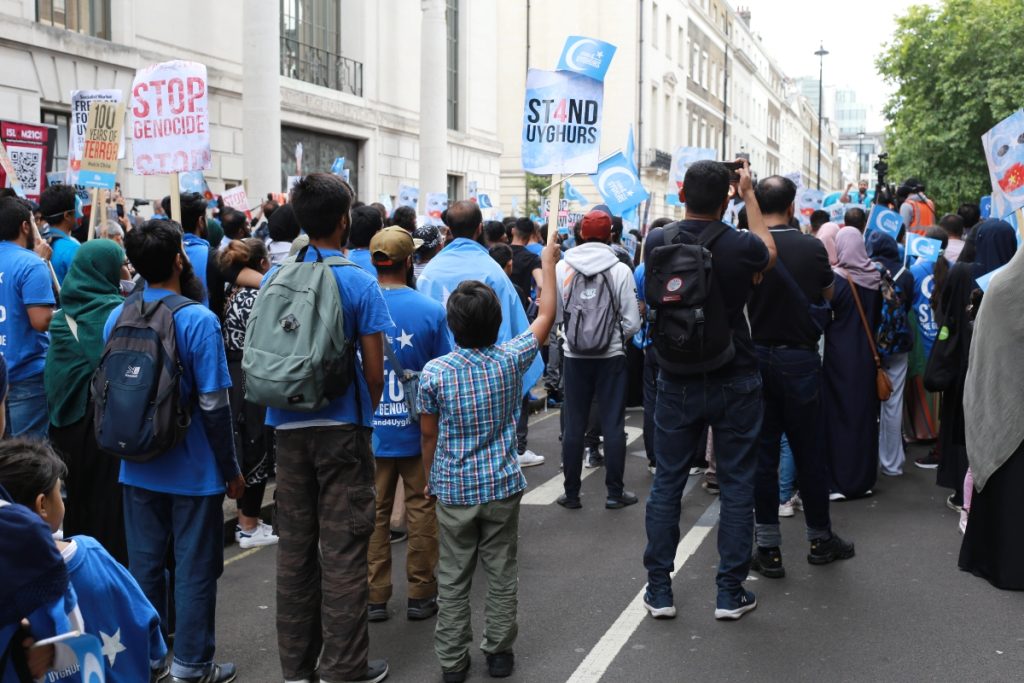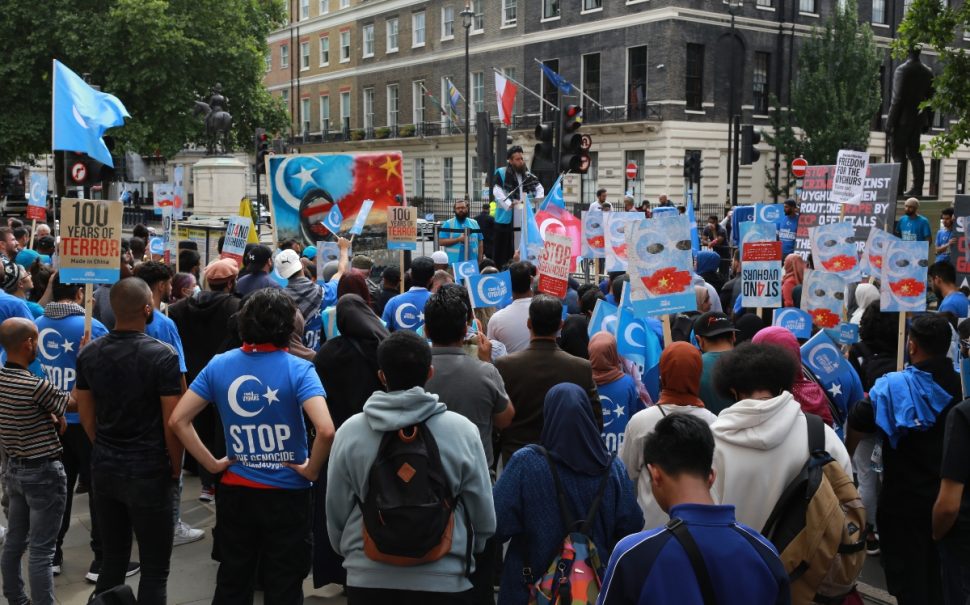Several activist groups have vowed to do more to raise the public awareness in the United Kingdom about China’s repression of Uyghurs in Xinjiang.
Activists said they have kept lobbying British MPs on the issue in recent years but responses remained lukewarm.
A Uyghur community group said it hopes the British government will show a tougher stance against China over Uyghurs’ human rights issue.
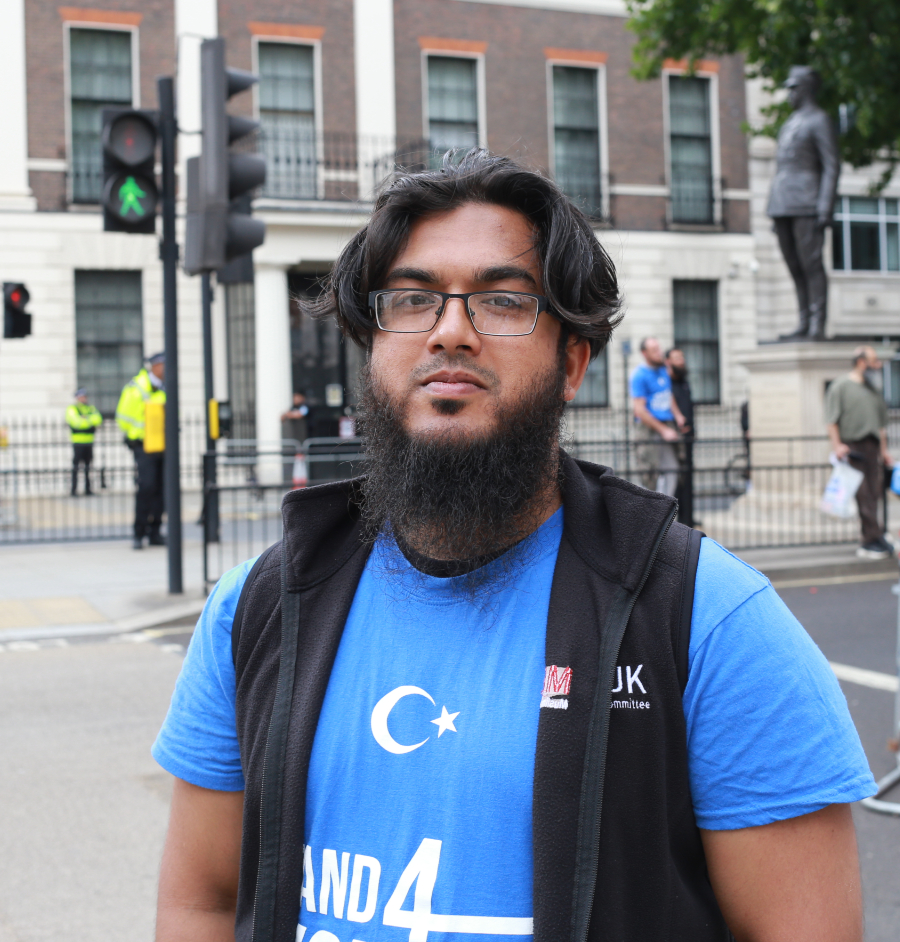
Ahammed Hussain, chief executive of civil liberties pressure group Muslim Public Affairs Committee UK, said: “Whenever we talk to some MPs or elites in the community in the first few times, they are usually very reluctant to listening to us.
“But it does not mean that we quit. We must be pragmatic.
“There is no point in being naive and blind to the fact that China is the factory of the world and that its economic strength has an influence on the UK, as well as the European Union and the West in general.”
Hussain said as the Chinese economy is weakening, Beijing’s influence on the West will decline over time.
He added: “Besides, people in the UK are not aware of what is going on. There is an educational need and a need for long-term campaign and action.
“We may not be able to see the results immediately. We need to be patient. More and more people will hear our work and do their own work.”
Protests in six cities
Dozens of muslim groups rallied outside the Chinese Embassy in London to support Uyghurs on July 31.
The London protest was led by Islam21c, an organization which provides an online platform for British Muslims to share their art and culture.
This protest and five others held in Manchester, Edinburgh, Toronto, Washington DC and Brisbane on the same day were a part of an international campaign called Stand4Uyghurs, which aims to show solidarity to Uyghurs.
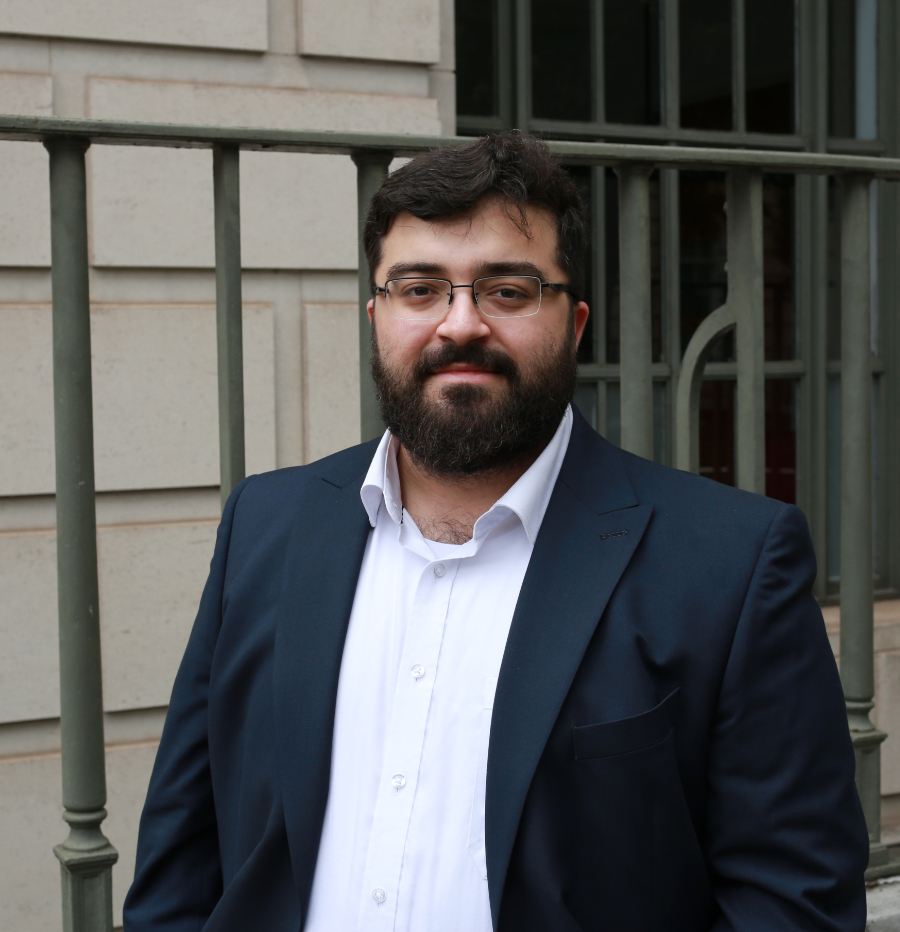
Mustafa Al-dabbagh, spokesperson of Muslim Association of Britain, a British Sunni Muslim organisation, said: “We are here to show the solidarity to our brothers and sisters in East Turkestan (Xinjiang), who are being brutally murdered or put in concentration camps by the Chinese Communist Party.
“A lot of our work involves lobbying MPs and doing community work. It’s a challenge to get the voices out there and raise people’s awareness of all the crimes against humanity happening across the world.”
“Today injustice happened to our Uyghur brothers and sisters. Tomorrow it will be Palestinians and the next day it will be Kashmiris.”
What is happening in Xinjiang?
The recent Xinjiang issue started with a protest in Urumqi on 5 July 2009 as hundreds of Uyghurs demanded an investigation into a case that two of their people were killed in a brawl in a toy factory in southern China’s Guangdong province in late June.
The rally eventually became a violent fight between Uyghurs and Han Chinese. According to the official Xinhua News Agency, 184 people died in the incident.
The Chinese government enacted the Xinjiang Uyghur Autonomous Region Regulation on De-Radicalization in March 2017.
In a white paper published in March 2019, it said ‘education and training centres’ had been set up to help Uyghur people learn job skills and change their religious extremism.
But Adrian Zenz, a German anthropologist, said at least 1.5 million Uyghurs had been arbitrarily detained in camps in Xinjiang.
The BBC was given a rare opportunity to visit a re-education camp in Xinjiang in June 2019. Its footage appeared to show some Uyghurs dancing and studying happily inside.
But a former detainee, who had left China, said she had been abused in one of the camps.
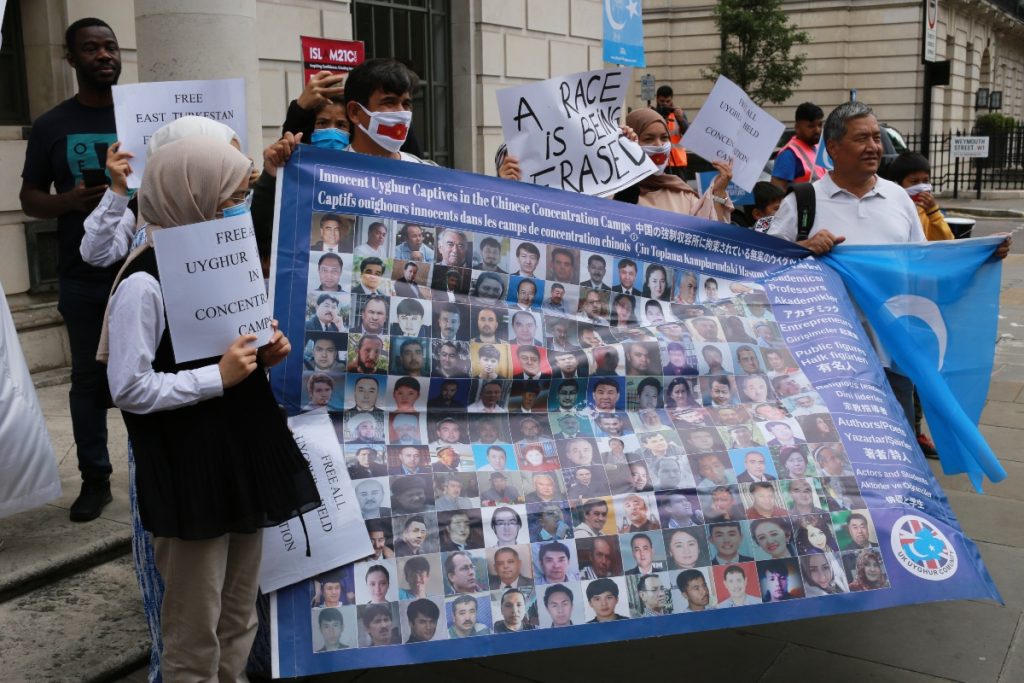
A 35-year-old Uyghur man, a volunteer of the UK Uyghur Community, a non-government organization, said he fled from China to the UK eight years ago as he wanted to get back his human rights and continue to practice his religion.
The man said he prefers to stay anonymous as his siblings and parents are still in East Turkestan and he does not want his children in the UK to be identified.
He said: “The UK government has done as much as they can to help the Uyghur refugees. But the work is still not enough.”
Sino-British diplomacy
The Foreign Affairs Committee of the UK Parliament published a report titled “Never Again: The UK’s Responsibility to Act on Atrocities in Xinjiang and Beyond” in July last year.
The report said the evidence of severe human rights abuses and crimes against the Uyghur people was already overwhelming and indisputable, so the Parliament had called it as genocide.
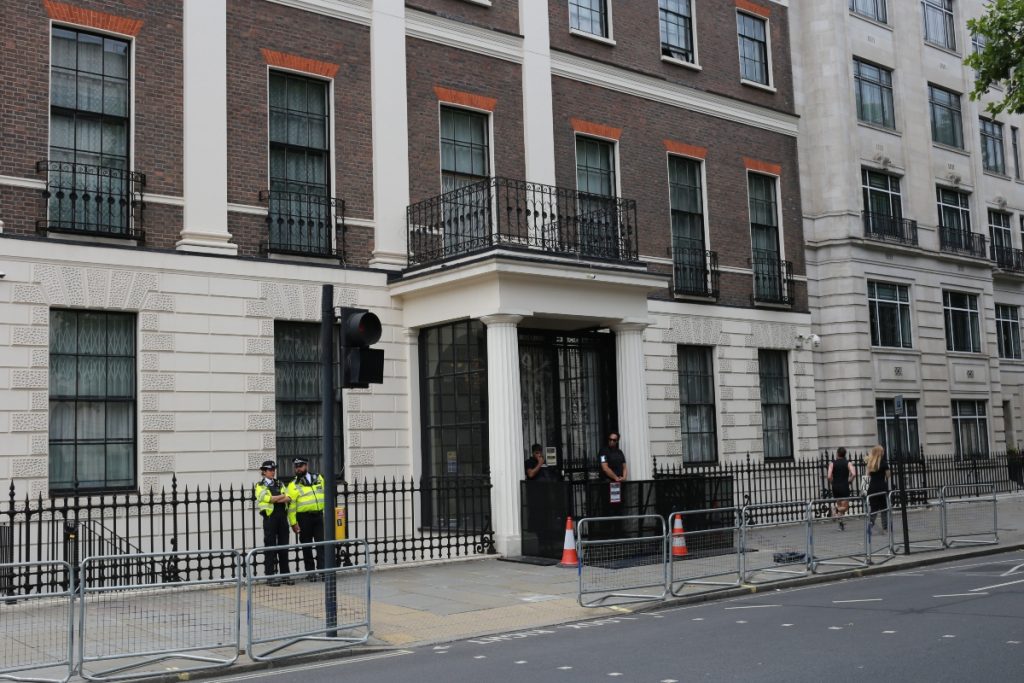
A spokesperson of the Chinese Embassy in the UK said last year: “The accusations against China in the report are groundless and full of lies.
“There are no so-called ‘internment camps’ in Xinjiang. The vocational education and training centers set up in Xinjiang in accordance with laws are schools.”
The British government in January last year announced measures to help UK organisations ensure that they were not contributing to the forced labor of the Uyghur Muslims in Xinjiang. But it fell short of calling the oppression a genocide.
Young supporters
While activists are skeptical about the effect of their campaigns, a 15-year-old girl wrote an article in her GCSE project to show support for Uyghurs earlier this year.
The girl, who does not wish to be named, said: “When I first did the project, not many classmates knew what it was. After I got more information, we had some emotional responses to it.”
“Genuinely no one should deserve to go through what Uyghur people are going through on a daily basis. It could have been us or anyone. We are very lucky as we are in the UK.”
She added that people do not need to have a racial or religious relationship with Uyghurs to care about them.
